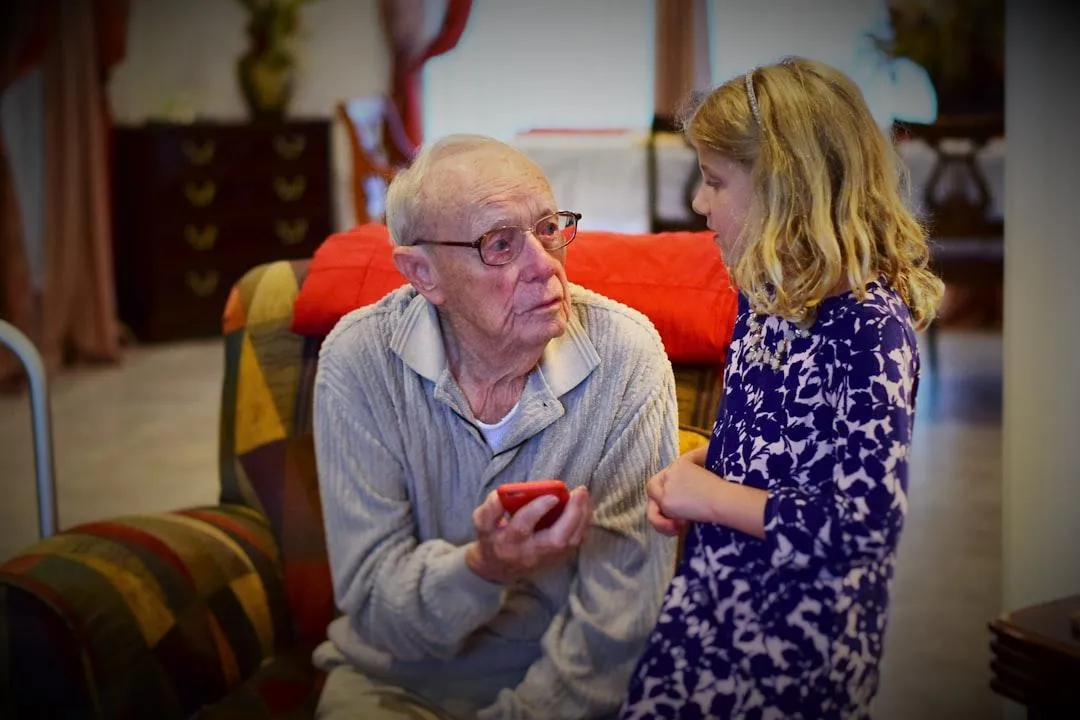
Beyond the Move: A Compassionate Approach to Senior Transitions in North Texas
Navigating senior transitions in North Texas requires more than moving logistics—it demands addressing emotional, psychological, and financial dimensions. Professional Senior Move Managers provide specialized support, helping families make proactive decisions while combining practical expertise with genuine empathy to reduce anxiety during these significant life changes.
Key Takeaways:
Senior transitions involve complex emotional, psychological, and financial dimensions that go far beyond the logistics of moving or selling a home.
Professional Senior Move Managers in North Texas provide specialized support addressing both the practical and emotional challenges of relocation.
Recognizing early signs for transition needs like physical limitations or social isolation helps families make proactive rather than crisis-driven decisions.
A compassionate approach that combines practical knowledge with genuine empathy creates trust and reduces anxiety during senior transitions.
Sage Senior Support offers comprehensive transition services that prioritize understanding your unique situation before proposing solutions.
Beyond Just Moving: Why Seniors Need Compassionate Transition Support
Moving your parents or yourself in later life isn't simply about boxing up belongings and changing addresses. It's a profound life transition filled with complex emotions, difficult decisions, and unexpected challenges. At its core, senior relocation represents significant change and loss—of familiar surroundings, cherished possessions, and established routines.
For many North Texas seniors and their families, the realization that selling the home is just one small piece of a much larger puzzle can be overwhelming. That moment when someone finally acknowledges all the dimensions of what you're experiencing—the logistics, emotions, family dynamics, and financial concerns—often brings an incredible sense of relief. That "FINALLY, someone understands our situation" feeling is what creates trust and opens the door to meaningful support.
Sage Senior Support specializes in recognizing that senior transitions in North Texas require more than just moving services—they demand a comprehensive approach that addresses both practical needs and emotional realities. When seniors and their families feel truly understood, the entire transition process transforms from overwhelming to manageable.
Those who work extensively with seniors going through these transitions witness firsthand how proper support makes all the difference. Professional Senior Move Managers understand that behind every box packed lies a lifetime of memories, and behind every logistical decision exists genuine concerns about the future. This recognition isn't just good customer service—it's the foundation of compassionate care that respects the dignity and unique journey of each senior.
Understanding the Full Spectrum of Senior Transitions
The Emotional Journey: Grief, Loss, and New Beginnings
When seniors leave a long-time home, they're not just leaving a physical structure—they're saying goodbye to a treasure chest of memories. Each room holds stories, each item carries significance. This departure triggers genuine grief that deserves acknowledgment and respect.
Many seniors experience profound sadness about moving on from spaces where they raised children, celebrated holidays, and marked life's milestones. This emotional response isn't merely sentimental—it's a natural part of the human experience when facing significant change.
However, transitions also open doors to new beginnings. With proper support, seniors can find renewed purpose and fresh connections in their next chapter. This emotional journey requires patience, understanding, and a safe space to process complex feelings.
The Logistical Challenge: More Than Just Packing Boxes
The physical aspects of moving a senior can be surprisingly complex. Beyond standard packing and moving concerns, seniors often face additional challenges:
Sorting through decades of accumulated possessions
Determining what will fit in a typically smaller new space
Managing important documents and records
Coordinating medical equipment transfers
Ensuring accessibility features in the new home
Maintaining medication schedules during the transition
These logistical hurdles require thoughtful planning and often specialized expertise. Many North Texas families find that professional Senior Move Managers significantly reduce stress by handling these complex details.
The Social Dimension: Building New Communities and Connections
One of the most overlooked aspects of senior transitions is the social adjustment. Leaving familiar neighborhoods means separating from established support networks—neighbors who check in, local shopkeepers who know preferences, and nearby friends who provide companionship.
Creating new social connections takes time and intentional effort. Quality senior living communities in North Texas recognize this challenge and often implement welcome programs, resident ambassadors, and organized activities to help newcomers integrate smoothly.
Navigating the Emotional Landscape with Empathy
Addressing Feelings of Loss and Grief
Acknowledging grief is the first step toward healing. When seniors express sadness about leaving their homes or parting with belongings, validating these feelings rather than dismissing them creates emotional safety.
Simple phrases like "I understand this is difficult" or "It's okay to feel sad about this change" can provide tremendous comfort. Creating opportunities to commemorate the old home—through photographs, storytelling, or special farewell gatherings—helps honor the past while moving forward.
Managing Caregiver Guilt and Family Dynamics
Adult children often experience significant guilt when helping parents transition, especially when moving them to assisted living or memory care. Questions like "Am I doing the right thing?" or "Will they feel abandoned?" can torment even the most well-intentioned family members.
Family dynamics frequently complicate matters further. Siblings may disagree about timing, location, or necessity of the move. Historical patterns of communication and decision-making resurface during these stressful times. A neutral third party can sometimes help navigate these complex interactions.
Creating Emotional Safety During Uncertainty
Transitions naturally involve uncertainty, which can trigger anxiety for seniors and their families. Creating emotional safety means providing clear information, maintaining routines where possible, and ensuring regular communication throughout the process.
Emotional safety also means honoring the senior's autonomy and involvement in decisions. Even when cognitive limitations exist, finding appropriate ways to include them in the process maintains dignity and reduces resistance.
Practical Downsizing Strategies That Actually Work
1. Starting Early: The Benefits of Proactive Planning
Downsizing by choice rather than crisis makes an enormous difference in outcomes and stress levels. Beginning the process while health is stable allows for thoughtful decision-making without the pressure of urgent deadlines or medical concerns.
Starting early means seniors can participate fully in the process, share stories about meaningful items, and have time to process emotions associated with letting go. This approach transforms downsizing from a dreaded task to a meaningful life review.
2. The Four-Box Method: Keep, Donate, Sell, Discard
One of the most effective approaches to downsizing is the Four-Box Method, which provides a clear framework for decision-making. As you tackle each room or category, sort items into four distinct destinations:
Keep: Items that will move to the new home, are frequently used, or hold significant emotional value
Donate: Items in good condition that could benefit others
Sell: Valuable items that are no longer needed
Discard: Items that are broken, obsolete, or unusable
This systematic approach prevents the common pattern of moving items from one pile to another without making actual decisions. It also helps create a tangible sense of progress as boxes fill up and rooms clear out.
3. Tackling Decision Fatigue with Structured Approaches
The sheer number of decisions required during downsizing can lead to decision fatigue—a state where the quality of decisions deteriorates after making many consecutive choices. This explains why many seniors start strong but eventually begin saying "just keep it all" as the process continues.
To combat decision fatigue:
Schedule downsizing sessions in 2-3 hour blocks rather than marathon days
Take frequent breaks and stay hydrated
Begin with easier, less emotional categories (like kitchen duplicates) before tackling sentimental items
Establish clear decision criteria beforehand
Celebrate progress regularly
These strategies help maintain mental energy and emotional resilience throughout the process.
4. When and How to Involve Professional Help
Many North Texas families discover that professional assistance transforms the downsizing experience from overwhelming to manageable. Consider seeking expert help when:
The timeframe is compressed
Family members live far away
The volume of possessions is substantial
Emotional tensions are running high
Physical limitations make the work difficult
Decision-making becomes paralyzing
Professional Senior Move Managers bring objectivity, efficiency, and specialized knowledge to the process. They can recommend trusted resources for selling valuable items, coordinate donation pickups, arrange shipping to family members, and ensure nothing important is overlooked.
Financial Realities: Uncovering Hidden Costs
Healthcare Access Changes When Relocating
When seniors move, especially across state lines, healthcare coverage can change significantly. Medicare Advantage plans often have regional networks, meaning a move might necessitate finding all new healthcare providers. Prescription drug coverage and copays can also vary by location.
Before finalizing a move, it's crucial to research healthcare options in the new area. Will current doctors accept Medicare? Are specialists for existing conditions available nearby? Will prescription costs increase? These questions help prevent unwelcome surprises.
Understanding North Texas Property Tax Implications
North Texas offers some specific property tax considerations for seniors. Adults over 65 qualify for additional homestead exemptions that can significantly reduce property tax burdens. However, these benefits may change when moving from one county to another within the region.
Some seniors are surprised to discover that moving to a smaller home doesn't always mean lower property taxes if the new home is in an area with higher tax rates or different exemption policies. Working with advisors who understand these North Texas specifics helps avoid financial miscalculations.
Insurance and Maintenance Cost Variations
Homeowner's insurance rates vary dramatically across North Texas due to factors like proximity to flood zones, crime rates, and construction materials. Auto insurance can also change based on location, even within the same metropolitan area.
Maintenance costs are another consideration. While a smaller home generally means lower maintenance expenses, moving from a rural area to an urban one (or vice versa) can significantly impact service costs. Home warranty considerations, landscaping needs, and utility rates all factor into the true cost of a new living situation.
North Texas Resources for Senior Transitions
Professional Senior Move Managers in DFW
The Dallas-Fort Worth metroplex is home to several certified Senior Move Managers who adhere to the National Association of Senior & Specialty Move Managers (NASMM) Code of Ethics. These professionals specialize in the unique challenges of later-life relocations.
Senior Move Managers typically offer comprehensive services including:
Space planning for the new home
Organizing and downsizing assistance
Packing and unpacking
Move coordination
Setup of the new residence
Disposition of unwanted items
These services can be customized based on specific needs and budgets, allowing families to get exactly the help they require.
Government and Nonprofit Support Programs
North Texas offers various support programs for seniors in transition. The Area Agency on Aging provides information, referrals, and in some cases, direct assistance with relocation needs. County-specific programs may offer financial assistance for qualifying seniors.
Nonprofit organizations like Catholic Charities, The Salvation Army, and Volunteers of America maintain active presence in North Texas, providing moving assistance, furniture, and household essentials for seniors in need.
Senior Living Communities with Transition Assistance
Many senior communities throughout North Texas have recognized the challenges of transition and developed programs to ease the process. These often include:
Ambassador programs pairing new residents with established ones
Welcome committees that help newcomers feel at home
Move-in coordinators who assist with logistics
Social events designed to integrate new residents
Personalized tours and orientation sessions
When researching communities, asking specifically about their transition support can reveal important differences in the move-in experience.
The Power of Being Truly Understood: Building Trust Through Comprehensive Support
At the heart of successful senior transitions is genuine understanding. When a senior or their family feels truly heard—when their concerns, fears, and hopes are acknowledged—trust develops naturally. This trust becomes the foundation for effective support throughout the transition journey.
Comprehensive support means addressing not just the practical aspects of moving but the emotional, social, and financial dimensions as well. It means recognizing that each senior's situation is unique, with its own challenges, priorities, and solutions.
For North Texas seniors facing transition, finding professionals who take the time to listen before offering solutions makes all the difference. The relief of finding someone who truly grasps the complexity of your situation—who makes you feel "FINALLY, someone understands"—cannot be overstated.
At Sage Senior Support, we believe that knowledge combined with empathy creates the most powerful form of assistance. By educating our clients while honoring their emotions, we transform overwhelming transitions into manageable journeys with dignity, respect, and care.
Sage Senior Support provides comprehensive senior transition services in North Texas, guiding families through every step of the journey with compassion, expertise, and understanding.


